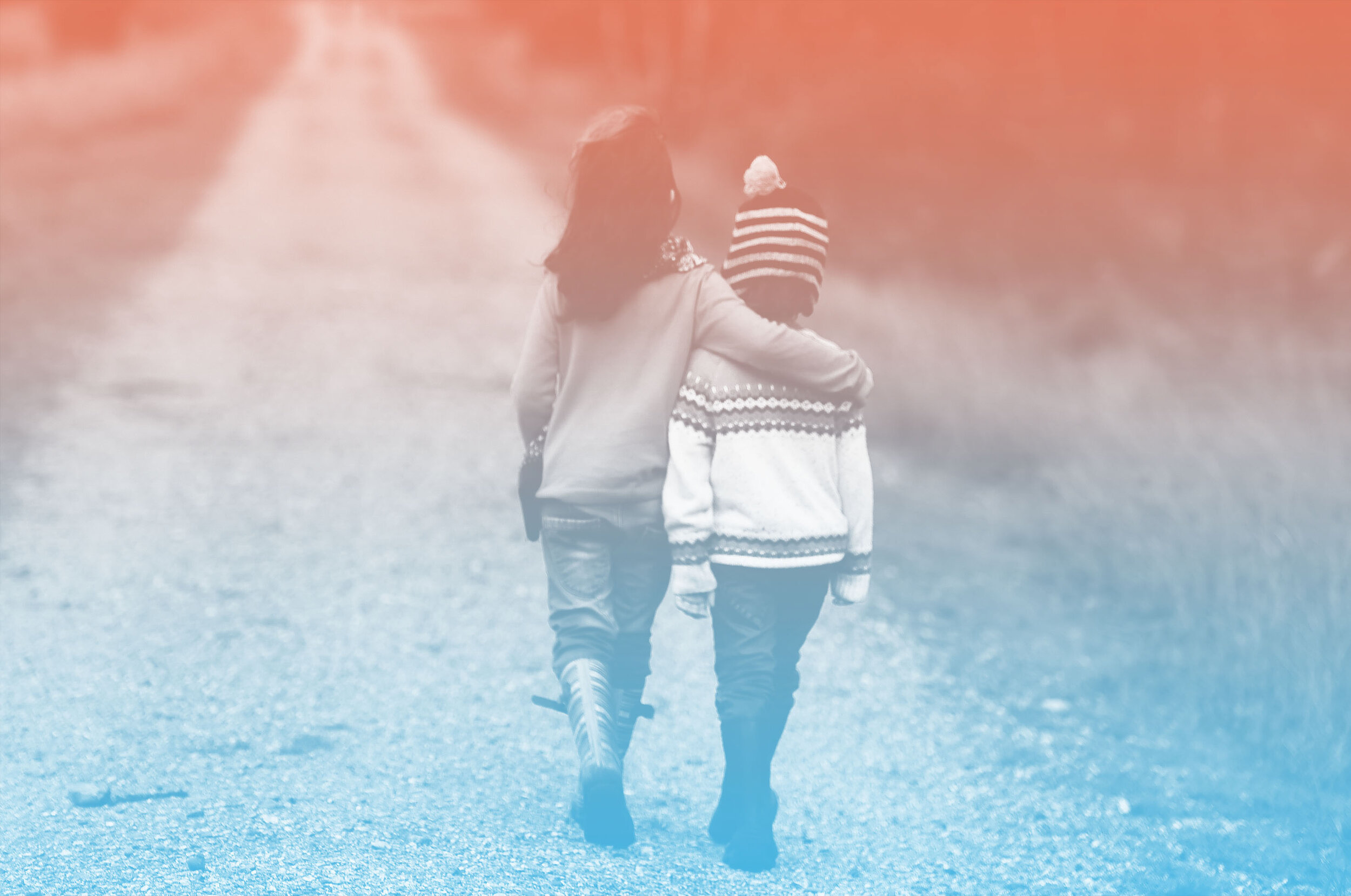
Empathize
Empathy is the capacity to understand or feel from another person’s point of view; the ability to “walk a mile in their shoes.” When we are in empathy, we feel aligned with the other person, rather than critical or combative.
Read more below…
THE BASICSExpress empathy
Empathy naturally grows during though the process of Listening, Observing, and Validating. Take it a step further by recalling and sharing a related personal experience. When somebody in your life expresses a feeling to you, think of a time when you have felt similarly. Recalling your feeling, share your empathy with them, without making yourself the center of the conversation.
“Ohmigosh, I know exactly how that feels! That’s how I spent my first year of college. I’m so sorry.”
“Wow, that’s tough. I know from experience how vulnerable that feels.”
“Good for you! That is such a great feeling when you’ve just completed big job. You worked hard and you deserve it!”
Be with the other person, holding space for their feeling.
Research tells us
Empathy is one of the traits that has helped humans thrive as a species. Alone we are weaker and less fit for survival than many other animals on earth, but together we have built a civilization that has changed the face of the planet. Collaborating effectively with others requires understanding others’ thoughts and needs and being willing to help out, in the trust that others will help you when you need it. Societies that operate based on empathy are collectively richer, with greater well-being, than societies with a dog-eat-dog mentality. (D) Not surprisingly, empathy is “contagious” within groups, meaning that when group norms encourage empathy, more people behave that way, leading to a spiral of social support. (E) But, it can go the other way as well – for example, when children are treated unkindly, their predisposition for empathy ‘turns off’. (from P4P)
On an individual level, empathy is linked with agreeableness, conscientiousness, self-esteem, subjective well-being, and prosocial behaviors. People with empathy are less prejudiced and more likely to go out of their way to help others – and not surprisingly have better marriages, and make people better bosses (G), doctors (F) and police officers.
Unfortunately, as a society we seem to becoming less empathetic (stat). This could be driven by increases in inequality, which has been shown to make higher status people less empathic. This is a self-perpetuating spiral, because as they become less empathic, higher status people are less likely to support legislation to help poorer classes, and even less likely to donate to charity. One bright spot, however, is that empathy can be reactivated by exposure to people of different backgrounds, through things like volunteering, living in amore mixed neighborhood, or even experiencing them through art & literature.
Sources
(B) Jamil Zaki "What, Me Care? Young Are Less Empathetic” in SA Mind 21, 6, 14-15 (January 2011) doi:10.1038/scientificamericanmind0111-14 https://www.scientificamerican.com/article/what-me-care/
(A) Hinnekens, C., Sillars, A., Verhofstadt, L. L., & Ickes, W. (2020). Empathic accuracy and cognitions during conflict: An in‐depth analysis of understanding scores. Personal Relationships. doi: 10.1111/pere.12311 https://www.psychologytoday.com/us/blog/fulfillment-any-age/202004/how-well-can-you-read-your-partners-mind
(C) Perry, D., Hendler, T., & Shamay-Tsoory, S. G. (2012). Can we share the joy of others? Empathic neural responses to distress versus joy. Social, Cognitive, and Affective Neuroscience, 7(8), 909-916.
(D) Differences in Empathic Concern and Perspective Taking Across 63 Countries William J. Chopik, Ed O’Brien, Sara H. Konrath First Published October 14, 2016 Research Article https://doi.org/10.1177/0022022116673910 Article information Article Information Volume: 48 issue: 1, page(s): 23-38 Article first published online: October 14, 2016; Issue published: January 1, 2017
(E) Prosocial Conformity: Prosocial Norms Generalize Across Behavior and Empathy Erik C. Nook1, Desmond C. Ong2, Sylvia A. Morelli2, Jason P. Mitchell1, and Jamil Zaki2
(F) Canale, Stefano Del, MD, PhD; Louis, Daniel Z., MS; Maio, Vittorio, PharmD, MS, MSPH; Wang, Xiaohong, MS; Rossi, Giuseppina, MD; Hojat, Mohammadreza, PhD; Gonnella, Joseph S., MD The Relationship Between Physician Empathy and Disease Complications, Academic Medicine: September 2012 - Volume 87 - Issue 9 - p 1243-1249 doi: 10.1097/ACM.0b013e3182628fbf
(G) Managers with Empathy Might Improve Employee Health "A Daily Investigation of the Role of Manager Empathy on Employee Well-Being" Scotta, B.A., et. al. Organizational Behavior and Human Decision Processes, November 2010, Vol. 113 (2), 127-140
Why Inequality Is Bad for the One Percent, Greater Good Magazine. BY JASON MARSH | SEPTEMBER 25, 2012. https://greatergood.berkeley.edu/article/item/why_inequality_is_bad_for_the_one_percent
